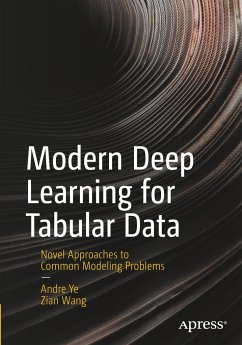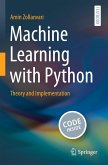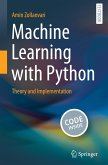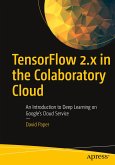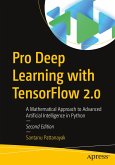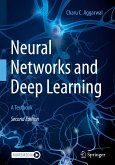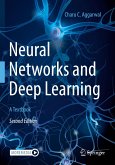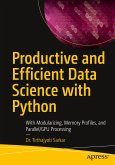Deep learning is one of the most powerful tools in the modern artificial intelligence landscape. While having been predominantly applied to highly specialized image, text, and signal datasets, this book synthesizes and presents novel deep learning approaches to a seemingly unlikely domain - tabular data. Whether for finance, business, security, medicine, or countless other domain, deep learning can help mine and model complex patterns in tabular data - an incredibly ubiquitous form of structured data.
Part I of the book offers a rigorous overview of machine learning principles, algorithms, and implementation skills relevant to holistically modeling and manipulating tabular data. Part II studies five dominant deep learning model designs - Artificial Neural Networks, Convolutional Neural Networks, Recurrent Neural Networks, Attention and Transformers, and Tree-Rooted Networks - through both their 'default' usage and their application to tabular data. Part III compounds the power of the previously covered methods by surveying strategies and techniques to supercharge deep learning systems: autoencoders, deep data generation, meta-optimization, multi-model arrangement, and neural network interpretability. Each chapter comes with extensive visualization, code, and relevant research coverage.
Modern Deep Learning for Tabular Data is one of the first of its kind - a wide exploration of deep learning theory and applications to tabular data, integrating and documenting novel methods and techniques in the field. This book provides a strong conceptual and theoretical toolkit to approach challenging tabular data problems.
What You Will Learn
Important concepts and developments in modern machine learning and deep learning, with a strong emphasis on tabular data applications.Understand the promising links between deep learning and tabular data, and when a deep learning approach is or isn't appropriate.Apply promising research and unique modeling approaches in real-world data contexts.Explore and engage with modern, research-backed theoretical advances on deep tabular modelingUtilize unique and successful preprocessing methods to prepare tabular data for successful modelling.
Who This Book Is ForData scientists and researchers of all levels from beginner to advanced looking to level up results on tabular data with deep learning or to understand the theoretical and practical aspects of deep tabular modeling research. Applicable to readers seeking to apply deep learning to all sorts of complex tabular data contexts, including business, finance, medicine, education, and security.
Part I of the book offers a rigorous overview of machine learning principles, algorithms, and implementation skills relevant to holistically modeling and manipulating tabular data. Part II studies five dominant deep learning model designs - Artificial Neural Networks, Convolutional Neural Networks, Recurrent Neural Networks, Attention and Transformers, and Tree-Rooted Networks - through both their 'default' usage and their application to tabular data. Part III compounds the power of the previously covered methods by surveying strategies and techniques to supercharge deep learning systems: autoencoders, deep data generation, meta-optimization, multi-model arrangement, and neural network interpretability. Each chapter comes with extensive visualization, code, and relevant research coverage.
Modern Deep Learning for Tabular Data is one of the first of its kind - a wide exploration of deep learning theory and applications to tabular data, integrating and documenting novel methods and techniques in the field. This book provides a strong conceptual and theoretical toolkit to approach challenging tabular data problems.
What You Will Learn
Important concepts and developments in modern machine learning and deep learning, with a strong emphasis on tabular data applications.Understand the promising links between deep learning and tabular data, and when a deep learning approach is or isn't appropriate.Apply promising research and unique modeling approaches in real-world data contexts.Explore and engage with modern, research-backed theoretical advances on deep tabular modelingUtilize unique and successful preprocessing methods to prepare tabular data for successful modelling.
Who This Book Is ForData scientists and researchers of all levels from beginner to advanced looking to level up results on tabular data with deep learning or to understand the theoretical and practical aspects of deep tabular modeling research. Applicable to readers seeking to apply deep learning to all sorts of complex tabular data contexts, including business, finance, medicine, education, and security.

